‘Keep your mouth shut!’ – 10 Soviet posters about vigilance
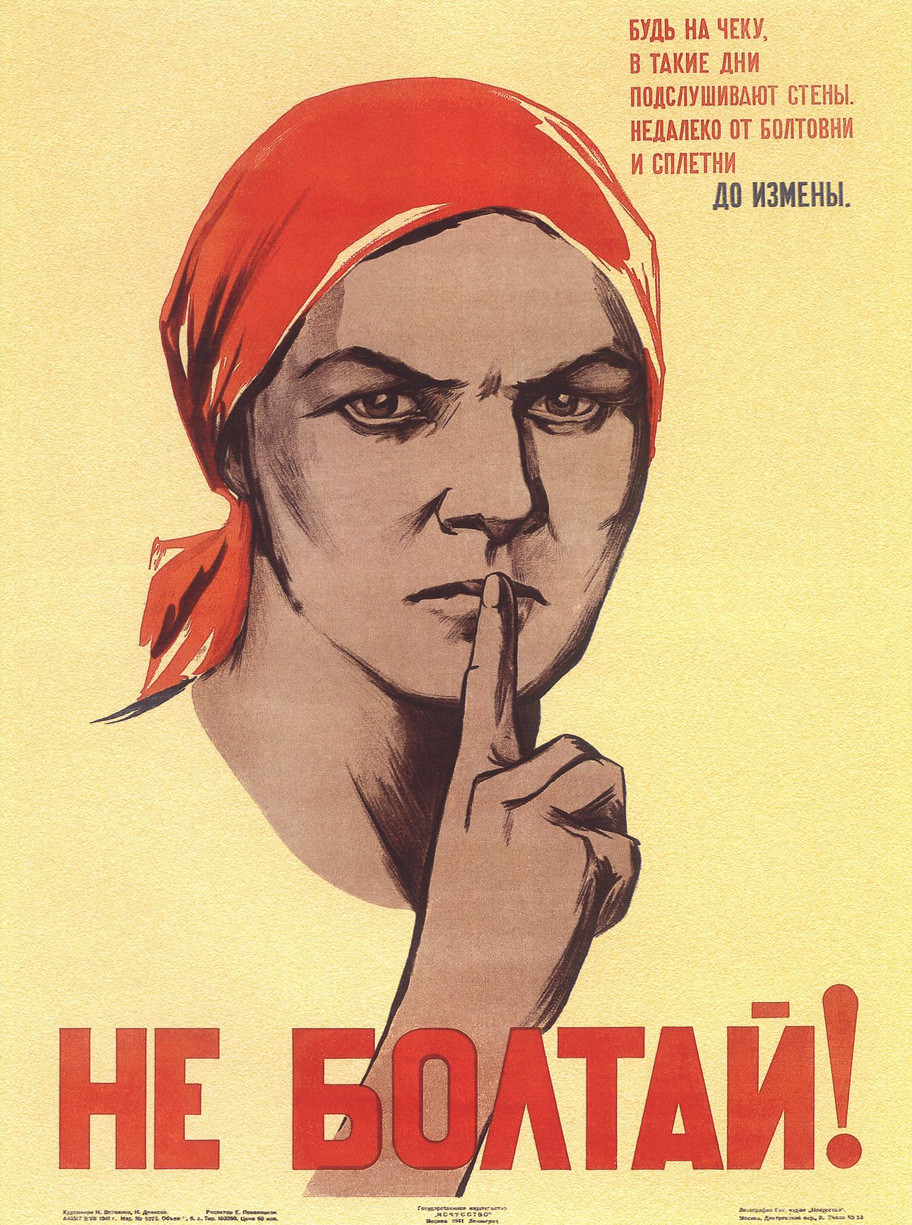
'Keep your mouth shut!'
N. Vatolina, N. DenisovVigilance was characteristic of Soviet society, as the posters below demonstrate. As you can imagine, during WWII people living in the USSR needed to remain alert as Adolf Hitler’s Germany advanced.
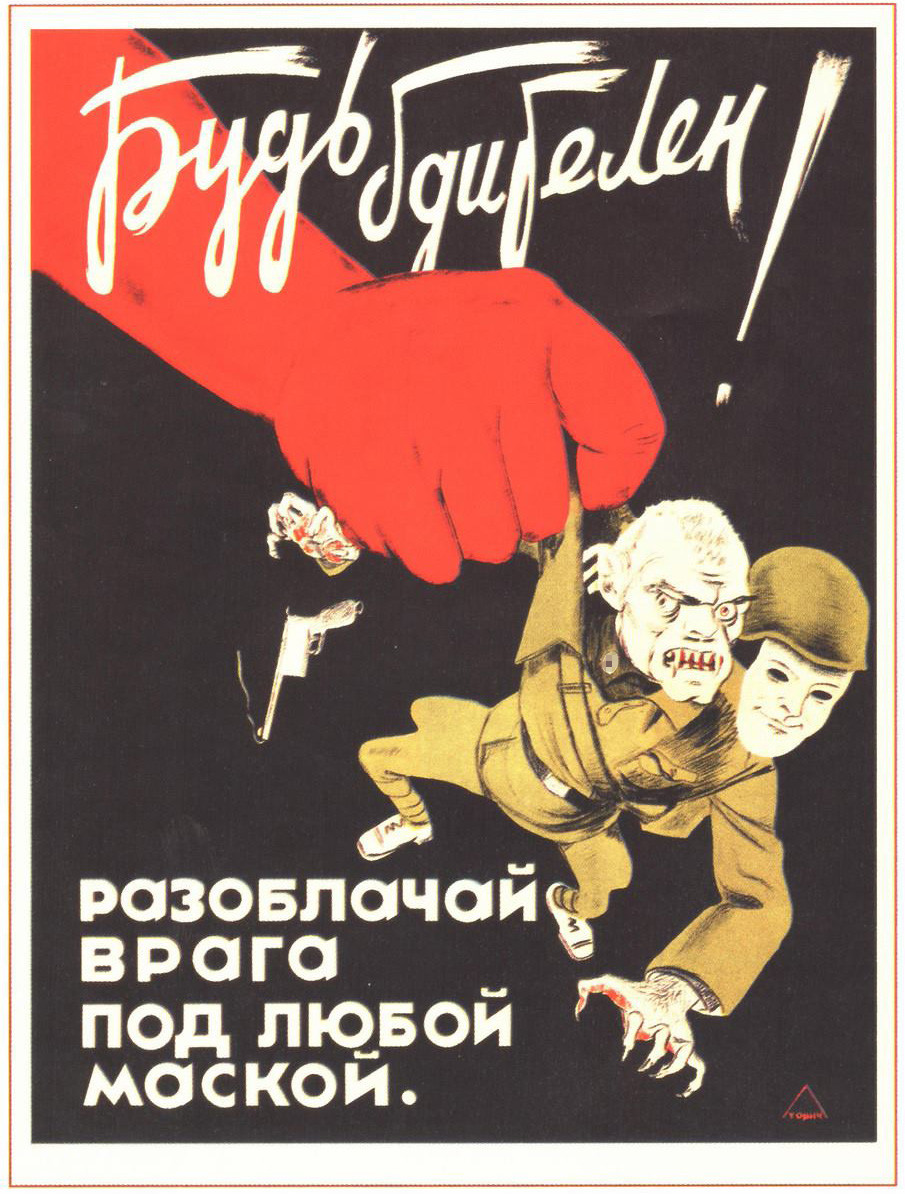
'Be vigilant! Reveal an enemy under any mask'
L. TorichHowever, calls to be vigilant were heard both before, during, and after WWII. A 1953 article in one leading Soviet newspaper tellingly titled “Vigilance is an inherent quality of Soviet people” explained the idea by first touching on the negative geopolitical context.
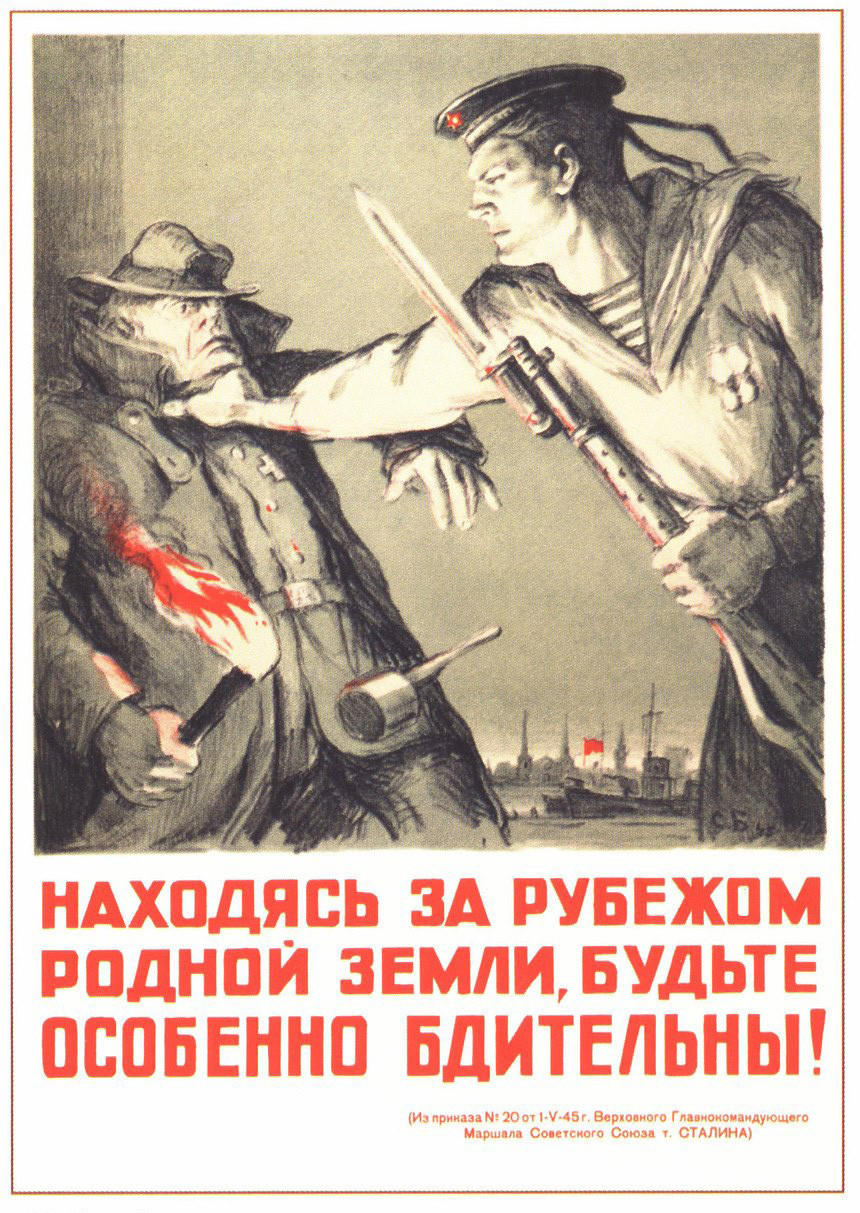
'While abroad, be especially vigilant!'
S. Boim“In the whole course of the Soviet state’s history, the rulers of capitalist countries have done their best to sabotage the constructive work of our people. American imperialists performing the role of world policemen…resort to the most desperate means in order to hinder our progressive development. They allocate enormous funds on spying and sabotage missions in the countries that stepped on the road of free development.”
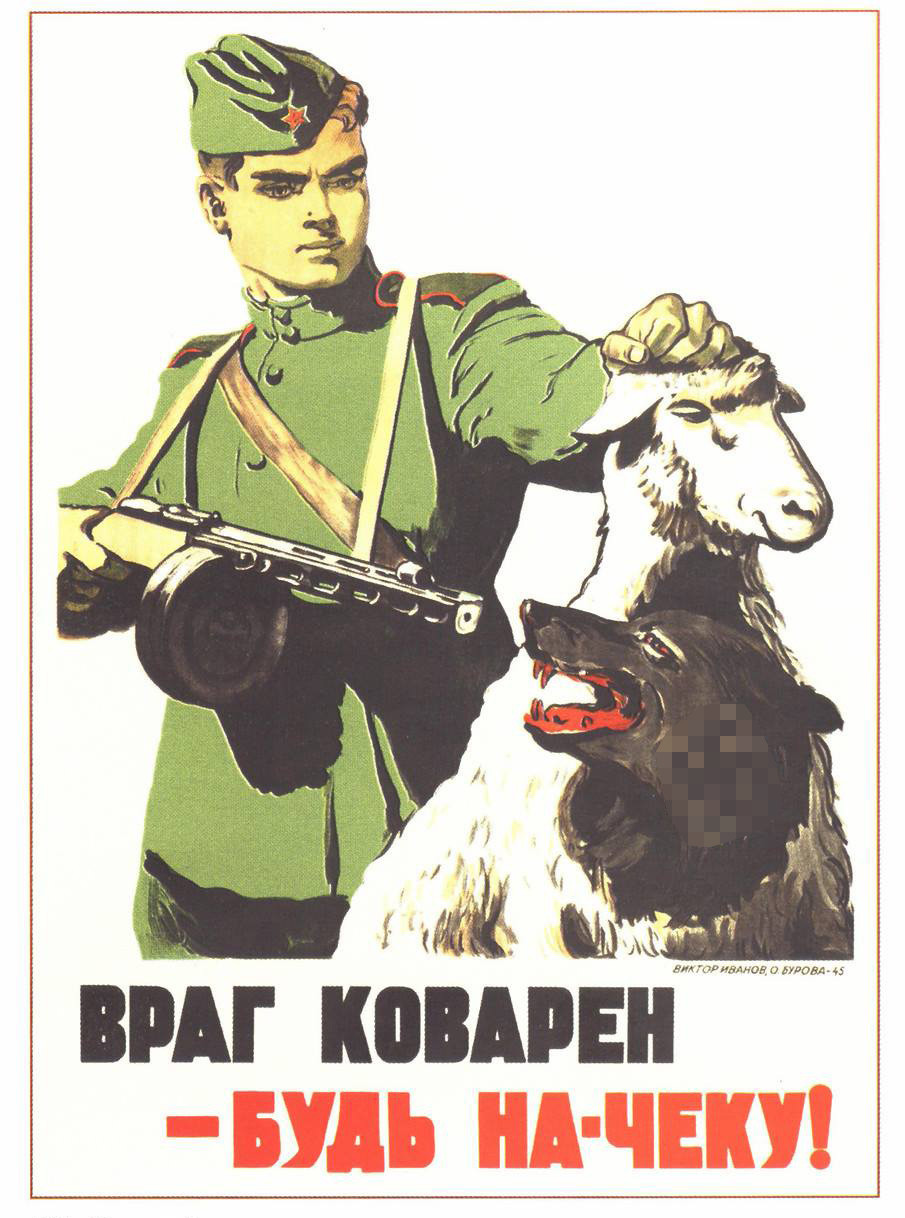
'The enemy is insidious. Watch out!'
V. Ivanov, O. BurovaSecondly, the class struggle within the USSR was not slowing down despite socialism. On the contrary, it was deepening. “We still have the relicts of bourgeois ideology and bourgeois morals, the relics of private-ownership psychology and morals. We still have bearers of bourgeois views and morals – living people who arehidden enemies of our nation.” After Joseph Stalin’s death in 1953, the Soviet system was liberalized but the stress on vigilance, although weakened, remained, justified by the Cold War.
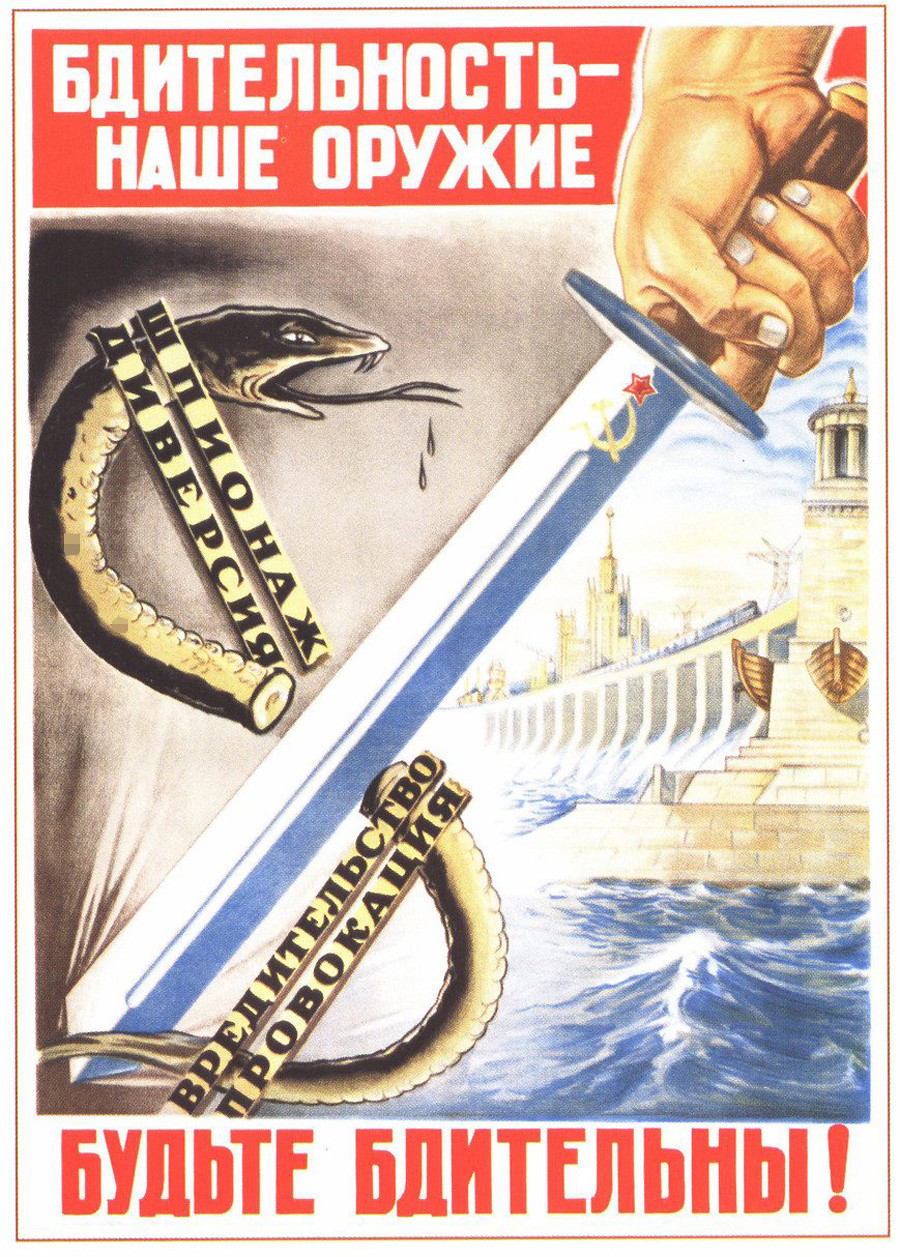
'Vigilance is our weapon'
B. Shirokorad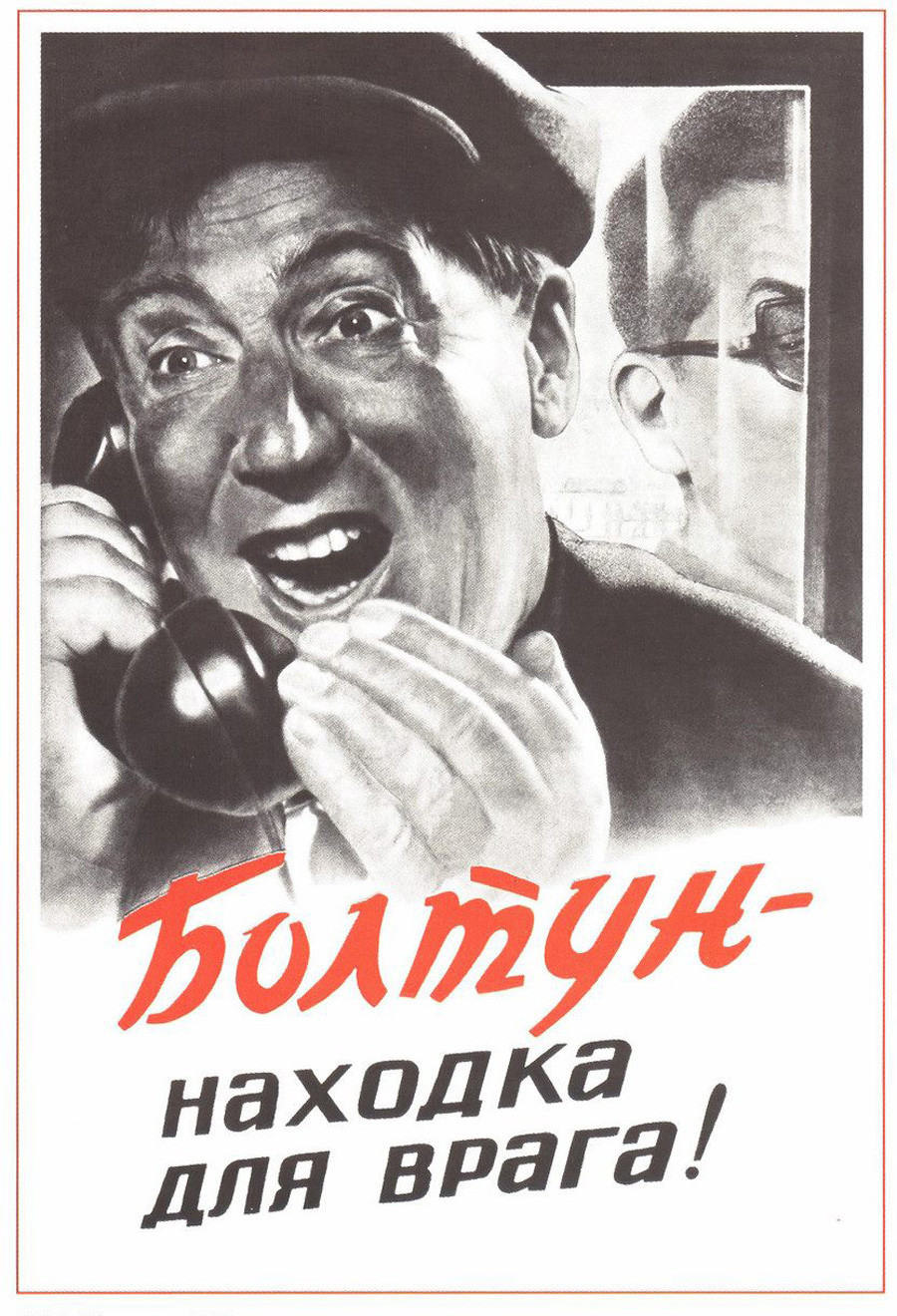
'A blabber is a spy’s asset'
V. Koretsky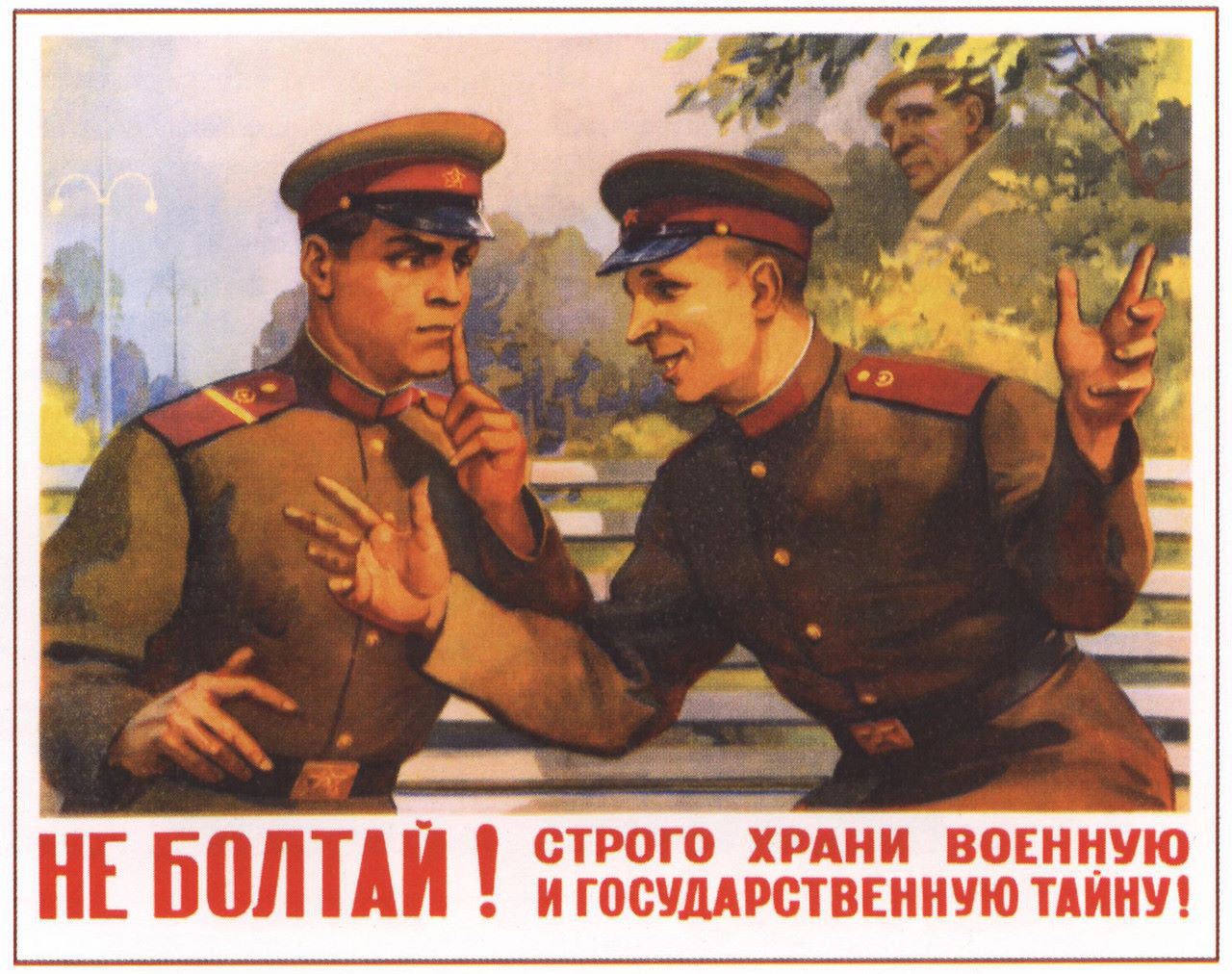
'Do not blab. Keep state and military secrets'
Yu. Chudov
'Vigilance is our weapon'
V. Ivanov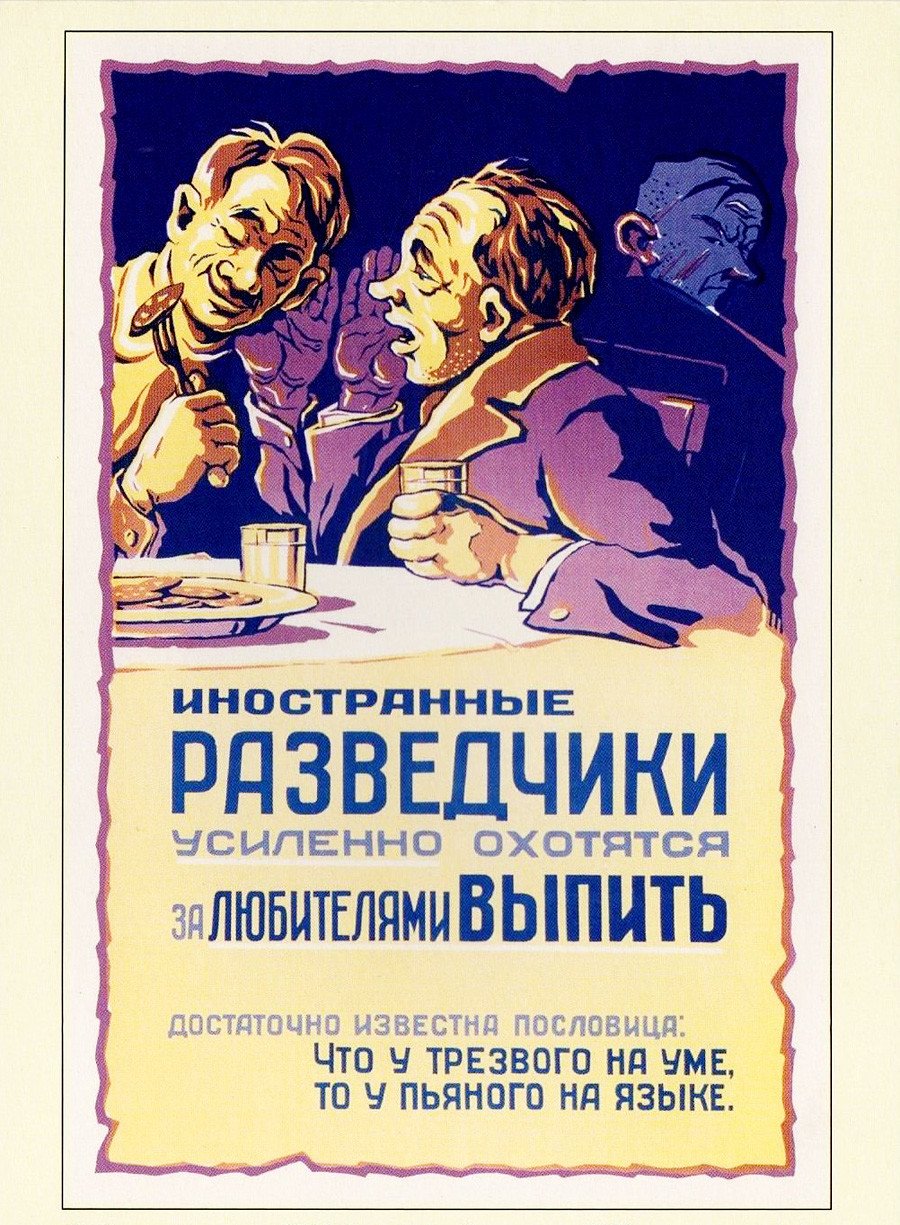
'Foreign intelligence agents are striving to find drink lovers'
Unknown artist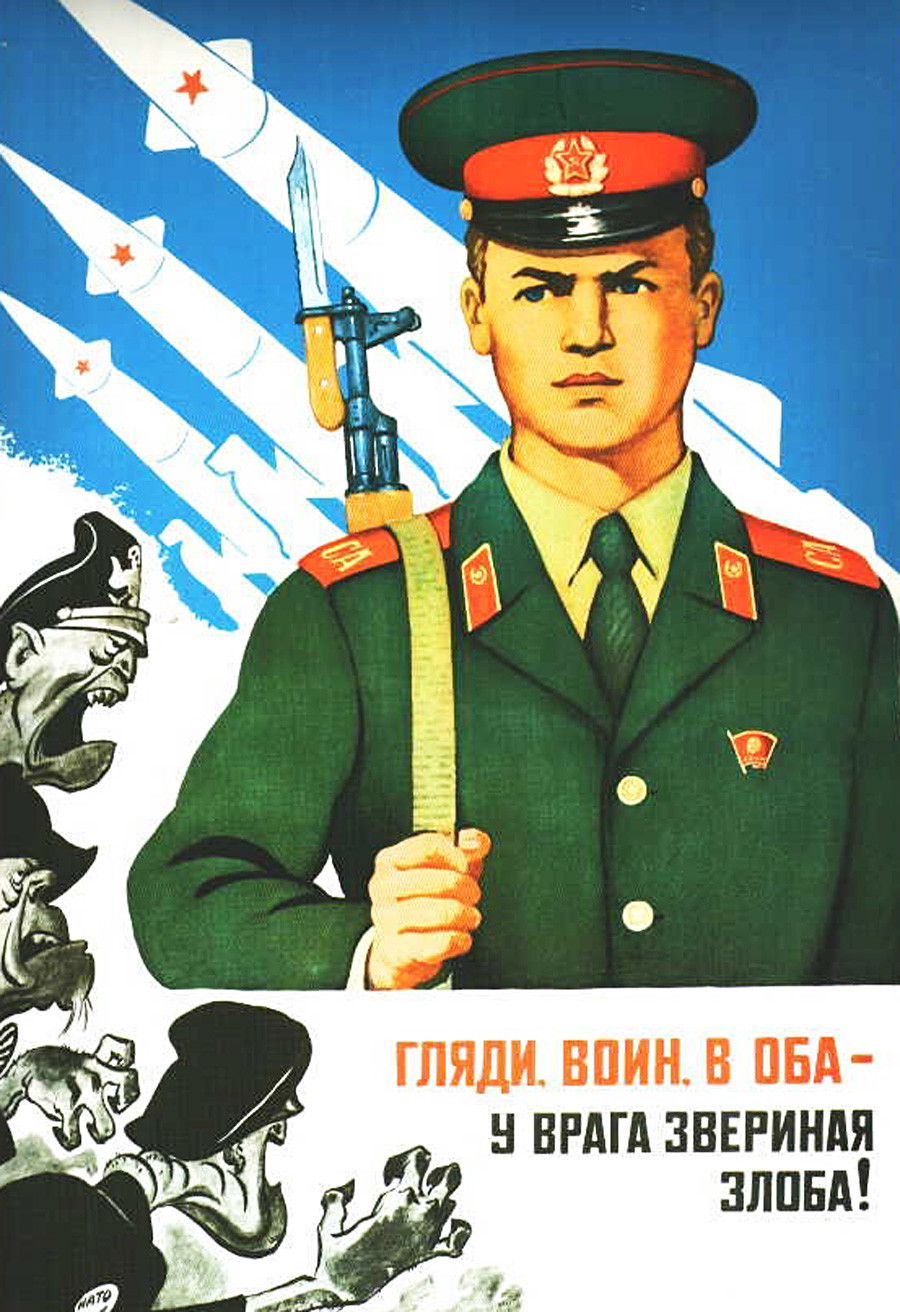
'Watch out! The enemy is as wicked as a beast'
B. Efimov, M.SolovievIf using any of Russia Beyond's content, partly or in full, always provide an active hyperlink to the original material.
Subscribe
to our newsletter!
Get the week's best stories straight to your inbox